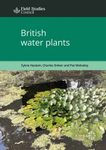About this book
Aquaculture is one of the fastest growing industries globally; its production volume currently represents over 40% of all fisheries and within a few years will surpass that of traditional fisheries. New species and methodologies contribute to the fact that new emerging diseases are increasingly being discovered within this field, and aquatic animal welfare issues are only just beginning to be considered.
This OIE Global Conference on Aquatic Animal Health was an opportunity for the OIE and its Member Countries to help build a framework for improved involvement and cooperation between the authorities (Veterinary and Fish Health, Fisheries and Environment), the scientific community and the private sector on aquatic animal health and welfare; help clarify the roles and responsibilities of all stakeholders in the process of early disease detection, rapid response and reporting; help increase aquatic animal health emergency response capabilities; exchange information on emerging diseases and animal welfare issues; help develop a science-based approach to the management of aquatic animal health and welfare; and present the valuable experience gained in the past few years. Following the presentations and discussions, recommendations were developed to better define roles and responsibilities and to assist in the evaluation and improvement of the current standards and guidelines for better control of infectious aquatic animal health, and the preparedness of countries for aquatic animal disease emergencies.
Contents
Preface: Vallat, B.; Introduction; Opening Remarks: Bar-Yaacov, K.; Setting the Scene for the OIE Global Conference on Aquatic Animal Health: Bernoth, E.-M.; Cooperation among Stakeholders in Aquatic Animal Disease Management; Cooperation between Veterinary and Fisheries Authorities in Aquatic Animal Management in Sri Lanka: Amarasekara, S.K.R.; Managing the Koi Herpesvirus Disease Out-break in Indonesia and the Lessons Learned: Bondad-Reantaso, M.G.; Sunarto, A.; Subasinghe, R.P.; Brazilian Aquatic Animal Health Policy: Barros Cavalcante Neto, J.; de Azevedo Pedrosa Cunha, E.; Contribution of Science to Farm-Level Aquatic Animal Health Management: Corsin, F.; Giorgetti, G.; Mohan, C.V.; Modelling for Disease Preparedness and Response: Murray, A.G.; Raynard, R.S.; Infrastructure for Disease Surveillance and Emergency Response; Structural Arrangements in Australia for Managing Aquatic Animal Disease Emergencies: Bernoth, E.-M.; A New System for Monitoring Health Status in Norwegian Aquaculture: Thorud, K.; Brun, E.; Lillehaug, A.; Almklov, M.; Romstad, S.; Binde, M.; Communicating and Networking; Communication and Networking in a Regional Organisation: Mohan, C.V.; Phillips, M.J.; Corsin, F.; International Disease Reporting and Communication: Chaisemartin, D.; Refinement and Use of Certificates of Veterinary Inspection (Health Certificates) for Optimal Assurance of Disease Freedom in Aquatic Animals: Starling, D.E.; Palic, D.; Scarfe, A.D.; Education and Training Needs in Aquatic Animal Health; Experiences in Providing Training and Education in Aquatic Animal Health: Pollock, L.; Richards, R.; PANDA Assessment of Needs and Training Opportunities in Aquatic Animal Health: Hiney, M.; Training Needs and Provision in Developing Countries of the Asia-Pacific Region: Lavilla-Pitogo, C.R.; Opportunities for Training in Shrimp Diseases: Lightner, D.V.; Redman, R.M.; Aquatic Animal Welfare; OIE Involvement in Aquatic Animal Welfare: The Need for Development of Guidelines Based on Welfare for Farming, Transport and Slaughter Purposes in Aquatic Animals: Hastein, T.; The OIE's Involvement in Aquatic Animal Health: Bernoth, E.-M.; Conference Recommendations and the Way Forward; Recommendations; Closing Remarks: Bar-Yaacov, K.
Customer Reviews














![Nouvelle-Calédonie: Archipel de Corail [New Caledonia: World of Corals]](http://mediacdn.nhbs.com/jackets/jackets_resizer_medium/24/247969.jpg?height=150&width=170)














